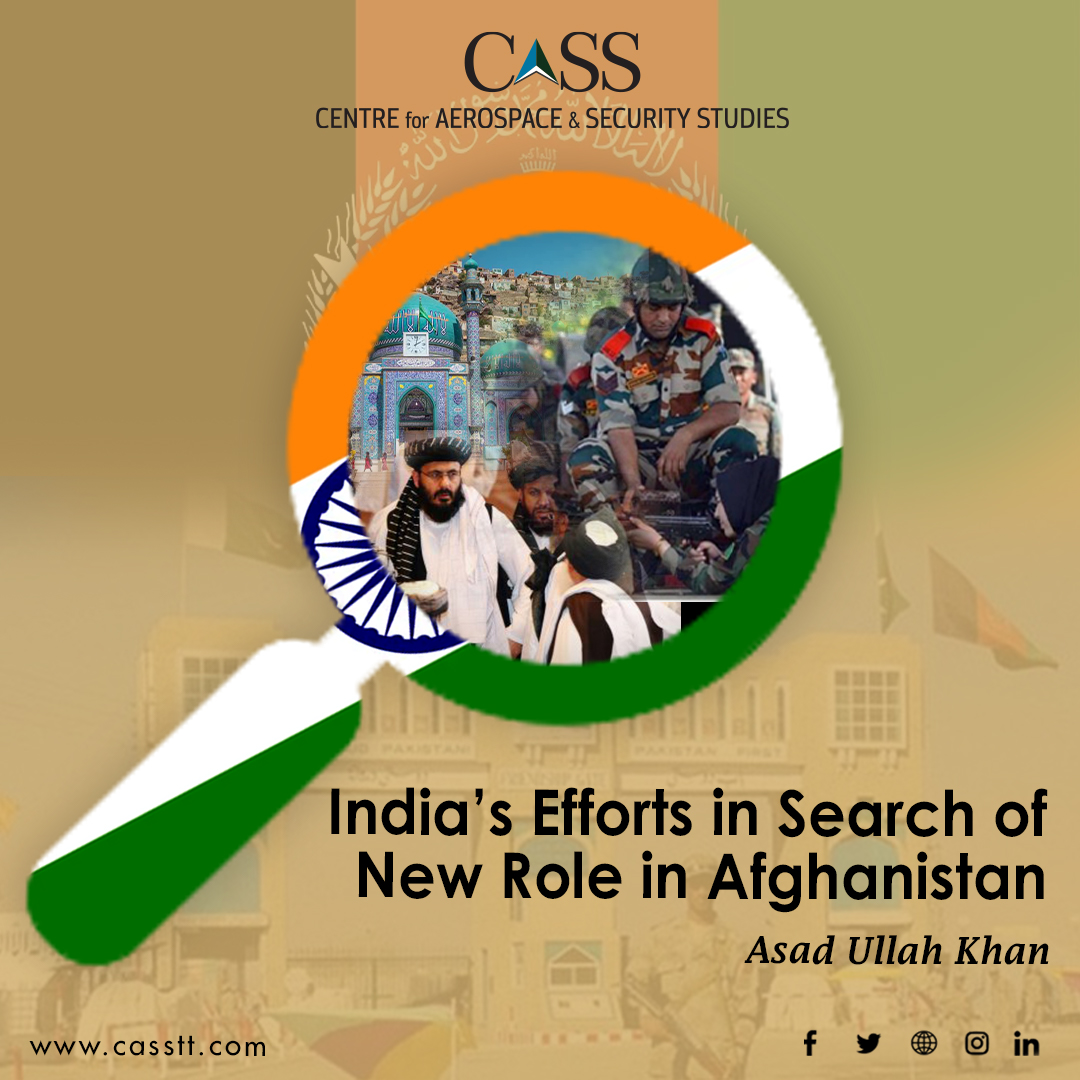It comes as no surprise that India has shown greater intent to engage with the Afghan Taliban as compared to other countries. With the Afghan Taliban’s predecessor Ashraf Ghani (who was critical of Islamabad’s role in Afghanistan and shared closer ties with New Delhi) long gone, India is looking for new avenues to establish a working relationship with the new regime. The Taliban are keen to establish diplomatic relations with regional states and international powers. Therefore, they are envisioning prospects of establishing diplomatic ties with India and seeking international recognition as the legitimate administration in Kabul. The worsening economic situation, coupled with reluctance among states to trade and invest in the country, are key factors that are making Kabul keen to establish relations with India.
While the incumbent regime claims to bring peace and stability in Afghanistan, recent incidents of increasing terrorist activity both in their own borders and in Pakistan have raised concerns of the international community. Pakistan, along with other regional and international stakeholders, has consistently emphasised the need to eliminate terrorist groups from Afghan soil. The recent developments in which Afghanistan’s Defence Minister Mullah Mohammad Yaqoob agreed to training of Afghan soldiers in India is reflective of their bid to seek international legitimacy and diplomatic recognition. India, who once left Afghanistan by thinking that the current regime was likely going to foster safe havens for anti-state entities, is once again trying to search for a new role in the country by developing diplomatic relations with the Taliban regime under the pretext of humanitarian assistance.
Although India has not formally recognised the Taliban government, New Delhi has deployed a technical team at its embassy – once again, seeking a strong diplomatic footprint in Kabul. In addition, the Indian government delivered a batch of medical supplies (including a consignment of medicines, vaccines, and medical equipment) under the banner of ‘humanitarian assistance’ as per their Ministry of External Affairs. Indian diplomatic delegations have also visited Kabul in recent months. These overtures from the Indian side have been well received by the Afghan Taliban. However, how willing New Delhi is to establish a genuinely equal relationship with the Taliban government without using Afghan soil to subvert security and stability in neighbouring Pakistan is yet to be seen. Moreover, how the Afghan Taliban – an ideologically religious group that represents a strong sense of affinity towards Muslims around the world – would respond to the deteriorating rights of the Muslim minority in BJP-ruled India could also impact the relationship.
Afghan Taliban are also not likely to forget how close the Ghani government was to India and how quickly New Delhi closed its diplomatic missions when the Taliban took over. Moreover, Indian authorities suspended flights going to Afghanistan and halted bank payments to the Afghan government in recent months. Recently, the Indian government revoked the Afghan student visas in large numbers while also evacuating members of the Sikh minority – ostensibly to evacuate them from the ‘horrific Taliban rule’. Furthermore, as India’s strategic partnership with the United States (US) has grown, the Taliban’s criticism of US drone attacks and freezing of Afghan assets is getting sharper. This could complicate things for India, especially given its consistent efforts to gain diplomatic and strategic space in Afghanistan. Therefore, it is difficult to suggest that India’s renewed friendly and humanitarian overtures will be trusted by the Taliban administration in Kabul.
Pakistan needs to understand that though the Taliban is not actively addressing global concerns on human rights issues to get international recognition, they have established authority in Kabul, thereby, becoming key to the peace and stability that Islamabad desires in the country. Moreover, they are an important stakeholder to quash terrorist activity and ensure that Afghan soil is not used by terrorist groups to instil instability in the neighbourhood. This means that the problem of TTP in Pakistan needs to be addressed while taking the Afghan Taliban on board, given that the group enjoys safe havens in Afghanistan. Against the backdrop of commitments made by the Afghan Taliban to the international community, Pakistan should actively engage with the Taliban to not let Afghan soil be used by any spoiler (especially India) to further geostrategic aims or use the territory to fuel terror and instability in Pakistan.
Asad Ullah Khan is a Senior Research Associate at the Centre for Aerospace & Security Studies, (CASS), Islamabad, Pakistan. The article was first published in Modern Diplomacy. He can be reached at snr.res.a@casstt.com




